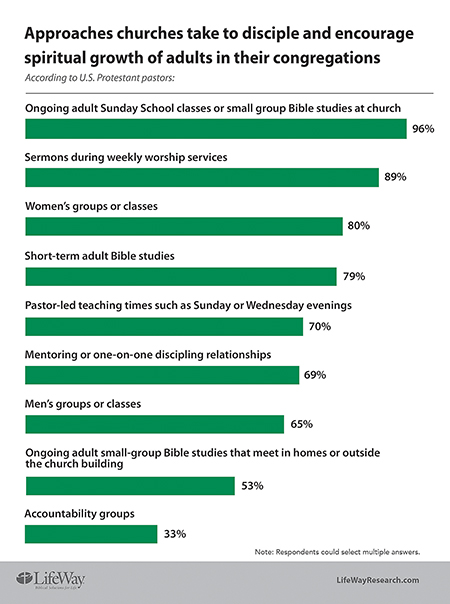 Poll Shows U.S. Church Membership Decline
Poll Shows U.S. Church Membership Decline
According to a study by Gallup, Inc., a global analytics and advice firm, the number of U.S. adults who are members of a church, mosque or synagogue has dropped by 20 percent in the last two decades.
Compared to 70 percent in 1999, only half of Americans reported being members of a church or other place of worship in 2018. Interestingly, more than half of the 20 percent drop has occurred since 2010.
To measure this decline, researchers at Gallup compared aggregated church membership data, based on multiple surveys over the years.
Jeffrey M. Jones, a senior editor at Gallup and the author of the article detailing the research, said this trend is consistent with other trends that have been taking hold in today’s society.
“The decline in church membership mostly reflects the fact that few Americans than in the past now have any religious affiliation,” Jones wrote in the article. “However, even those who do identify with a particular religion are less likely to belong to a church or other place of worship than in the past.”
Here are some key takeaways from the research:
- From 1998 to 2000, 8 percent of U.S. adults said they have no religious affiliation.
- From 2016 to 2018, that number more than doubled, with 19 percent reporting no religious affiliation last year.
- There are some Americans who do not identify with a religion, but do belong to a church. From 1998 to 2000, 10 percent of non-religious Americans said they belonged to a church.
- From 2016 to 2018, the number of non-religious Americans who belong to a church dropped to 7 percent.
- In addition to the decline of religious Americans, there are also fewer religious Americans who are church members. In 2000, 73 percent of U.S. adults with a religious preference belonged to a church.
- Today, 64 percent of Americans who identify with an organized religion said they belong to a church.
- The membership decline is steeper among Catholics, with 76 percent belonging to a church 20 years ago dropping to 63 percent in 2018.
- The membership rate of Protestants has dropped from 73 percent two decades ago to 67 percent today.
- There is a noticeable correlation between the rise of Millennials as the dominant population and the decline in church membership. On average, only 42 percent of Millennials are members of a church, compared to 62 percent of Gen X members 20 years ago.
“Most Millennials were too young to be polled in 1998 to 2000,” Jones wrote. “Now that they have reached adulthood, their church membership rates are exceedingly low and appear to be a major factor in the drop in overall U.S. church membership.”
Study Reveals Pastors’ Attitudes on Discipleship Efforts
One of the most important jobs of a pastor is the discipleship of his or her congregants. If the members are not continuing to develop spiritually, how can a church hope to accomplish its mission?
That’s why many pastors these days are measuring and tracking the progress of discipleship in their churches.

According to a new study from LifeWay Research, while most Protestant pastors are confident about the discipleship taking place in their churches, many agree that there is room for growth and improvement.
In a phone survey of 1,000 Protestant pastors conducted from August 29 to September 11, 2018:
- 65 percent said they are satisfied with the state of discipleship and spiritual formation in their local church, but 78 percent indicated there was room for improvement.
- 34 percent disagreed with the statement, “I am satisfied with the state of discipleship and spiritual formation in our local church.”
- 1 percent of respondents said they were not sure if they agreed or disagreed with the statement.
According to LifeWay researchers, 44 percent of the respondents said they are not “regularly evaluating discipleship progress to inform that opinion,” though 83 percent of the pastors sampled said they have an intentional plan for discipleship.
The confidence of pastors in their churches’ discipleship has risen in recent years. According to LifeWay, only 47 percent of pastors responding to a similar survey in 2011 said they satisfied with the state of discipleship in their church. The number of pastors who track that progress is also up, with 55 percent of 2019 respondents saying they did, compared to 43 percent in 2011.
Scott McConnell, executive director of LifeWay Research, described discipleship as an intentional and consistent effort to follow Jesus, but the approach to accomplishing this varies based on the text of each unique church.
“As pastors increasingly value measurement of discipleship, it is important to note that growth in Christlikeness is more than having new people to fill places of service at church,” McConnell said. “Our journey with Christ involves our beliefs, attitudes and behaviors, so we need evaluation in all of these areas.”


